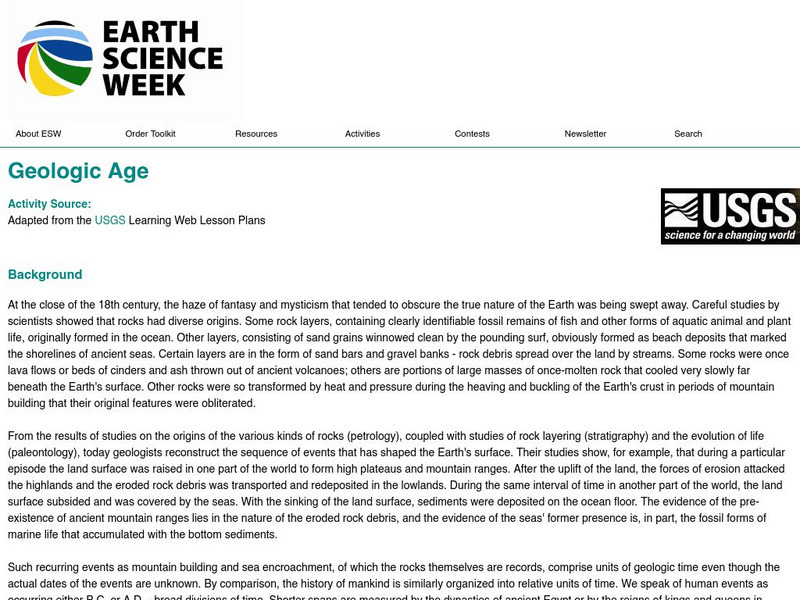American Geosciences Institute
American Geosciences Institute: Earth Science Week: Geologic Age
Explore geologic time of the Earth and learn how radioactive decay helps to establish a timeline.
New York Times
New York Times: Truths of the Second Nuclear Age
Identifies how many warheads different countries have throughout the world. Also provides information about the United States' and Russia's current arsenals. Discusses which countries have signed the non-proliferation treaties and which...
PBS
Pbs: American Experience: The Trials of J. Robert Oppenheimer
J. Robert Oppenheimer is credited with the creation of the atomic bomb. But, "The country asked him to do something and he did it brilliantly, and they repaid him for the tremendous job he did by breaking him." This documentary traces...
American Academy of Achievement
Academy of Achievement: Edward Teller, ph.d.
Biography of Edward Teller teaches us about his early life which began in Budapest, Hungary, his interest in physics and his subsequent contributions in the development of the atomic bomb.
Ohio State University
Osu History Teaching Institute: The Manhattan Project
Students will discuss the role of technology of the atomic bomb and explore the destruction of Nagasaki and Hiroshima during WWII. Students will then outline some of the social and political changes that resulted from the Manhattan Project.
Other
Los Alamos National Laboratory
The official website of the Los Alamos National Laboratory. You will find the history of the laboratory as well as many of the key figures. There is also an interactive history of the Manhattan Project. Be sure to check out the photo...
National Institute of Standards and Technology (NIST)
Nist Physics Laboratory: A Walk Through Time
An illustrated history of timekeeping from ancient times to the present. Includes information on ancient calendars, early clocks, a revolution in timekeeping, world time scales and time zones, and the NIST standards.
PBS
Pbs Learning Media: The Dating Game: Radioactive Carbon
In this media-rich essay from the NOVA: "Mystery of the First Americans" Web site, learn about the atomic structure of radioactive carbon and how it can be used to determine the age of organic remains, such as bones and teeth.
University of Colorado
University of Colorado: Physics 2000: Spectral Lines
Several pages from an excellent site which describe the science of spectroscopy. The unique atomic emission (and absorption) line spectrum of elements are illustrated and explained. Includes a Java applet depicting the quantum energy...
Other
Nuclearfiles.org: Who Built the H Bomb? Debate Revives
This article from "The New York Times" at Nuclearfiles.org recounts the ongoing debate about the first hydrgen bomb and who truly should be credited with its development.









